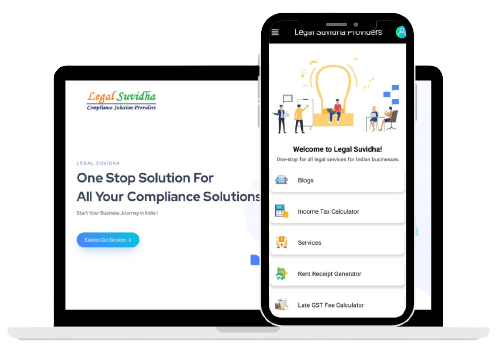ISO 27001: Information Security Management
ISO 27001: Information Security Management – A Simple Guide In today’s digital world, keeping sensitive information safe is more important...
A Joint Development Agreement (JDA) is a legal contract between two or more parties that outlines their collaboration on a specific project or product. The parties involved typically agree to share resources, knowledge, and expertise in order to achieve a common goal.

Happy Clients
Years Experience

Happy Clients
Years Experience
The JDA defines the terms of the collaboration, including the scope of the project, the responsibilities of each party, the intellectual property rights, the distribution of costs and profits, and the timelines for completion.
Joint Development Agreements are often used in industries such as technology, pharmaceuticals, and real estate development, where multiple parties may be required to contribute expertise or resources to achieve a common goal. By entering into a JDA, the parties can pool their resources and expertise to create something that may not have been possible on their own.
| Access to Resources | A Joint Development Agreement allows both parties to leverage each other’s resources, including expertise, technology, and funding. This can lead to a more efficient development process and a higher-quality end product. |
| Shared Risk | By sharing the costs and risks of development, both parties are more likely to succeed and minimize financial losses. This can be especially beneficial for small or emerging companies that may not have the resources to undertake a project alone. |
| Expanded Markets | Joint Development Agreements often involve partners from different geographic regions or industries, which can help to expand the potential market for the product or technology being developed. |
| Increased Innovation | Collaboration between parties can lead to greater innovation and creativity, as both parties bring unique perspectives and ideas to the project. |
| Access to Intellectual Property | Joint Development Agreements often involve the sharing of intellectual property, which can provide each party with access to new technologies or inventions. This can be especially beneficial for startups or smaller companies that may not have the resources to develop their own intellectual property. |
Step 1: Identify the Project: Parties interested in collaborating on a project must identify and define the project’s scope and objectives.
Step 2: Negotiate the Terms: The parties must negotiate the terms of the JDA, including each party’s contribution, the project timeline, and the sharing of costs and profits.
Step 3: Draft the Agreement: Once the parties have agreed on the terms, a written agreement must be drafted. The agreement should clearly outline each party’s roles and responsibilities, the project’s objectives, and the timeline for completion.
Step 4: Review and Approval: The drafted agreement should be reviewed by each party’s legal team to ensure that all terms are in line with their interests and needs. The agreement must then be approved and signed by all parties involved.
Step 5: Implementation: After the agreement has been signed, the parties can start implementing the project. They must regularly communicate and collaborate to ensure that the project is progressing as planned.
Step 6: Dispute Resolution: In case of any disputes, the parties must follow the dispute resolution mechanism outlined in the JDA. This may involve arbitration or mediation.
Step 7: Completion: Once the project is completed, the parties must finalize the financial aspects of the JDA, including the sharing of profits or losses. They should also assess the success of the collaboration and identify areas for improvement in future joint projects.
1. Letter of Intent or Memorandum of Understanding
2. Non-Disclosure Agreement
3. Intellectual Property Agreement
4. Project Plan
5. Cost-Sharing Agreement
6. JDA Agreement
7. Legal and Regulatory Documents
If one party breaches the agreement, the other party can terminate the agreement and seek damages.
The length of the agreement will depend on the nature of the project and the agreement between the parties. It can range from a few months to several years.
The Joint Development Agreement should outline ownership of intellectual property. Generally, the party that creates the intellectual property retains ownership, but it can be shared or licensed based on the agreement.
Yes, a Joint Development Agreement can be modified, but any changes should be agreed upon by all parties and documented in writing.
Yes, a Joint Development Agreement can be terminated early by either party with written notice.
Yes, a Joint Development Agreement is a legally binding contract.
#answer
#answer
#answer
#answer
With a commitment to exceeding expectations and a passion for delivering results, choosing us means choosing a partner dedicated to your success.

We provide free of cost consultation and legal advice to our clients.

We are a team of more than 15+ professionals with 11 years of experience.


All our services are online no need you to travel from your place.

There are no hidden & extra charges* other than the quote/invoice we provide.

We aim that all our customers are fully satisfied with our services.

We value your time and we promise all our services are delivered on time.

We provide free of cost consultation and legal advice to our clients.
In this Journey of the past 14+ years, we had gained the trust of many startups, businesses, and professionals in India and stand with a 4.9/5 rating in google reviews.We register business online and save time & paperwork.
Trustindex verifies that the original source of the review is Google. Mayank & the Legal Suvidha team are fantastic. They really try to understand the business like insiders and don't give you templatized solutions. The staff are extremely supportive and go out of their way to help you. I would recommend Mayank to anybody new to the startup ecosystem!Trustindex verifies that the original source of the review is Google. Great experience with smooth process during the startup india registration Excellent coordination and teamwork with effective implementation in very limited timeTrustindex verifies that the original source of the review is Google. Sound expertise, good coordination, efficient and timely execution.Trustindex verifies that the original source of the review is Google. Good service and very helpfulTrustindex verifies that the original source of the review is Google. We had a great experience working with the LegalSuvidha team - we have used them for both our Pvt Ltd and LLP formation and their team has been very proactive, knowledgeable, prompt and helpful. They helped with all DSCs as well and couriered them to us. Very professional and thorough. We also got our Startup India , MSME registrations through them promptly. Overall highly recommended. Special callout to Nidhi, Saloni, Anjalin, Shreya and Priyanka for promptly helping us throughout the process.Trustindex verifies that the original source of the review is Google. I am writing to thank you for the quality of service provided by your company. We sincerely appreciate your efficient, gracious customer service, the level of detail and accountability you have demonstrated and the way you conduct business as a whole. A special Thanks to Ms Saloni for her great help throughout.Verified by TrustindexTrustindex verified badge is the Universal Symbol of Trust. Only the greatest companies can get the verified badge who has a review score above 4.5, based on customer reviews over the past 12 months. Read more


Explore more of our blogs to have better clarity and understanding
of the latest corporate & business updates.
ISO 27001: Information Security Management – A Simple Guide In today’s digital world, keeping sensitive information safe is more important...
Operating an online store comes with numerous benefits—but also regulatory obligations. Securing the right licenses and permits is essential to...
Directors shape a company’s governance and strategic direction. Among board members, Executive Directors and Non‑Executive Directors (NEDs) play distinct yet...
The Articles of Association (AOA) form the backbone of a company’s internal governance, setting out the rules, rights, and responsibilities...
Selecting the optimal legal form is a critical decision when launching your U.S. venture. Both LLCs and Corporations offer liability...
Expanding your U.S.-based business into India unlocks access to a vast consumer market, a skilled workforce, and cost advantages—but also...
Here are some answers to potential questions that may arise as you start your business.
Register your business, obtain necessary licenses, and fulfill tax obligations.
Consider factors like ownership, liability, and tax implications to choose from options like sole proprietorship, partnership, or company registration.
Choose a unique business name, obtain required IDs like Director Identification Number (DIN), and file incorporation documents with the Registrar of Companies (ROC).
Obtain GST registration, trade licenses, and any industry-specific permits required to operate legally.
Maintain accurate financial records, file tax returns on time, and adhere to the tax laws applicable to your business.
Yes, startups in India can benefit from various government schemes offering tax exemptions, funding support, and incubation facilities.
Secure patents, trademarks, or copyrights to safeguard your intellectual assets from infringement or unauthorized use.
Challenges include navigating bureaucratic hurdles, complying with complex regulations, and competing in a crowded marketplace.
Looking For More Information? Contact Us
Sign up to receive email updates on new product announcements, special promotions, sales & more.
Redefining the experience of legal services. Now all Professional Services in a Single Click !


Copyright © 2025 Legal Suvidha Providers LLP. All rights reserved.
